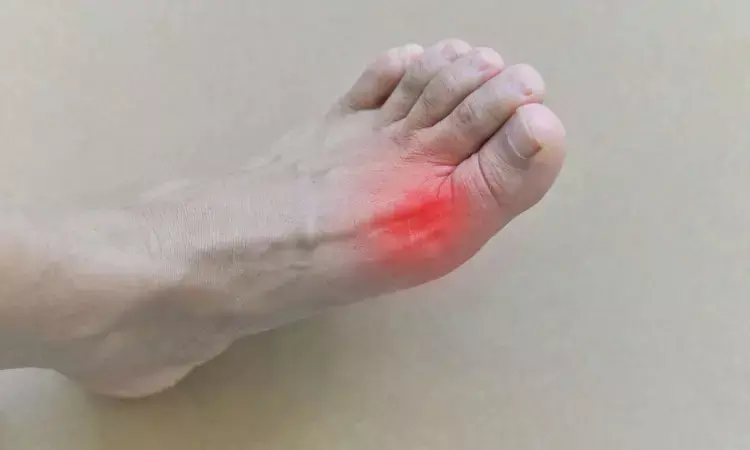- Home
- Medical news & Guidelines
- Anesthesiology
- Cardiology and CTVS
- Critical Care
- Dentistry
- Dermatology
- Diabetes and Endocrinology
- ENT
- Gastroenterology
- Medicine
- Nephrology
- Neurology
- Obstretics-Gynaecology
- Oncology
- Ophthalmology
- Orthopaedics
- Pediatrics-Neonatology
- Psychiatry
- Pulmonology
- Radiology
- Surgery
- Urology
- Laboratory Medicine
- Diet
- Nursing
- Paramedical
- Physiotherapy
- Health news
- Fact Check
- Bone Health Fact Check
- Brain Health Fact Check
- Cancer Related Fact Check
- Child Care Fact Check
- Dental and oral health fact check
- Diabetes and metabolic health fact check
- Diet and Nutrition Fact Check
- Eye and ENT Care Fact Check
- Fitness fact check
- Gut health fact check
- Heart health fact check
- Kidney health fact check
- Medical education fact check
- Men's health fact check
- Respiratory fact check
- Skin and hair care fact check
- Vaccine and Immunization fact check
- Women's health fact check
- AYUSH
- State News
- Andaman and Nicobar Islands
- Andhra Pradesh
- Arunachal Pradesh
- Assam
- Bihar
- Chandigarh
- Chattisgarh
- Dadra and Nagar Haveli
- Daman and Diu
- Delhi
- Goa
- Gujarat
- Haryana
- Himachal Pradesh
- Jammu & Kashmir
- Jharkhand
- Karnataka
- Kerala
- Ladakh
- Lakshadweep
- Madhya Pradesh
- Maharashtra
- Manipur
- Meghalaya
- Mizoram
- Nagaland
- Odisha
- Puducherry
- Punjab
- Rajasthan
- Sikkim
- Tamil Nadu
- Telangana
- Tripura
- Uttar Pradesh
- Uttrakhand
- West Bengal
- Medical Education
- Industry
Is metabolic syndrome a modifiable risk factor for gout?

In a study published in Arthritis & Rheumatology that included nearly 1.3 million men aged 20-39 years who participated in three serial health check-ups at two-year intervals, men with metabolic syndrome (MetS) and those who developed MetS-especially those with the MetS components of elevated triglycerides and abdominal obesity-had higher risks of developing gout.
Among participants, 18,473 developed gout, and those with MetS at all checkups had a nearly four-fold higher risk than participants who were MetS-free. Development of MetS more than doubled the risk of incident gout, whereas recovery from MetS reduced incident gout risk by nearly half.
"This is the first large-scale study to explore the association between dynamic changes in MetS and risk of gout," said co-corresponding author Jaejoon Lee, MD, PhD of the Sungkyunkwan University School of Medicine, in South Korea. "Prevention and recovery from MetS can significantly lower the risk of gout in young adults."
References: Yeonghee Eun MD, Ph.D.,Kyungdo Han Ph.D.,Seung Woo Lee MS,Kyung Kim PhD, Seonyoung Kang MD, Seulkee Lee MD, Ph.D.,Hoon-Suk Cha MD, Ph.D.,Eun-Mi Koh MD, Ph.D., Hyungjin Kim MD, Ph.D.,Jaejoong Lee MD, Ph.D. https://doi.org/10.1002/art.42381
Dr Kamal Kant Kohli-MBBS, DTCD- a chest specialist with more than 30 years of practice and a flair for writing clinical articles, Dr Kamal Kant Kohli joined Medical Dialogues as a Chief Editor of Medical News. Besides writing articles, as an editor, he proofreads and verifies all the medical content published on Medical Dialogues including those coming from journals, studies,medical conferences,guidelines etc. Email: drkohli@medicaldialogues.in. Contact no. 011-43720751


